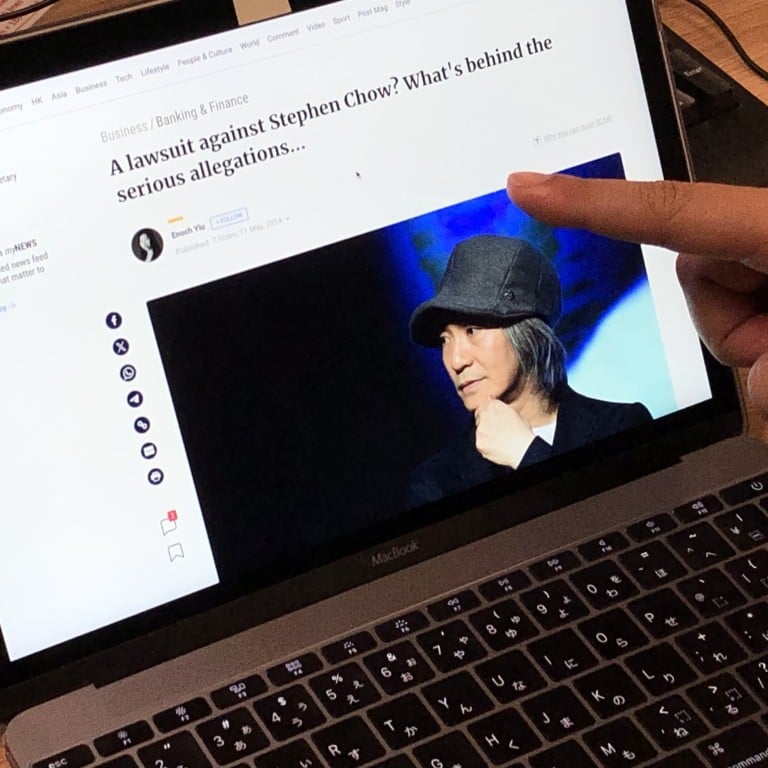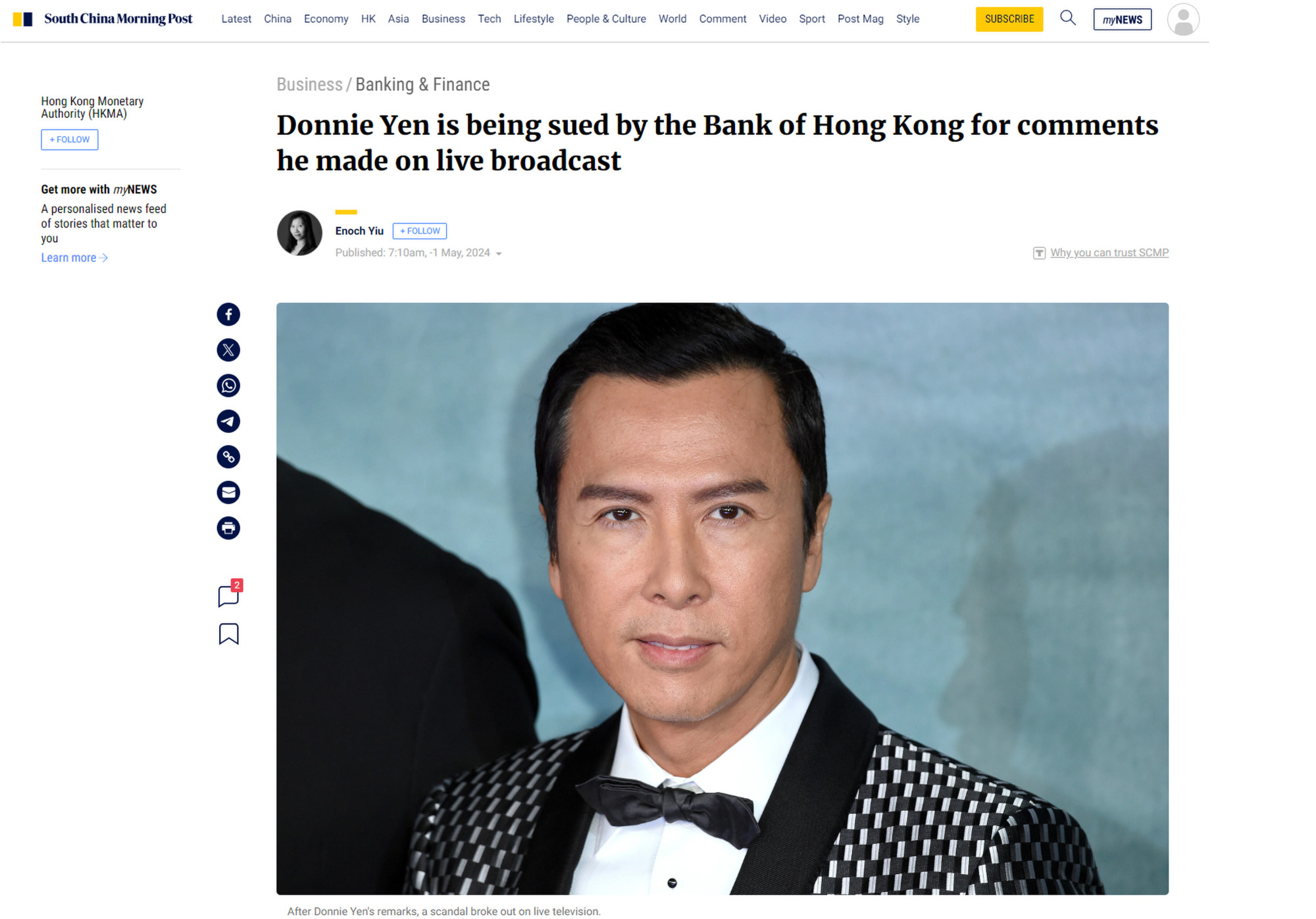
Fake news: hoax Post article claims to reveal Stephen Chow’s moneymaking secret, in second mimic incident in two weeks
- A fictitious article made to look like a South China Morning Post news story has circulated on social media, promoting an online trading tool
- Sham article is almost identical to one debunked two weeks ago, featuring Hong Kong movie star Donnie Yen and US talk show host Jimmy Kimmel
For at least the second time in two weeks, a fictitious article with the appearance of a South China Morning Post news story has circulated on social media, aiming to promote an online financial trading tool.
Using the Post’s logo, design and a real business reporter’s byline, the latest fake article claims that Chow referred to the online trading app during a live CCTV broadcast where he “accidentally revealed his secret” to making a fortune.

In both cases, the SCMP published no such story, and the reports are categorically fake, the Post said.
The images embedded in the Chow article are screenshots of a real interview between Chow and CCTV’s Zhu Dan, which took place in June 2022 ahead of Hong Kong’s 25th anniversary of its Handover from the UK to mainland China.
In the real interview, Chow called on a young generation of filmmakers to leverage the advantages of the Greater Bay Area to facilitate cultural exchange between China and foreign countries. The interview did not touch upon any financial topics.
The fake article claims the live broadcast was interrupted when Chow accidentally revealed his “secret”, and that the interview was later deleted. However, the Post has confirmed that the real interview video is still available on various CCTV platforms, including its official website, YouTube, and X, formerly Twitter.
Users who click any links on the fake article are directed to a website that asks them to sign up for a trading platform. That site also claims the platform has endorsements from two Hong Kong actors/singers, Louis Koo and Kelly Chen.
Hong Kong saw financial investment scams surge more than 55 per cent in the first quarter of the year, resulting in losses of more than HK$900 million, according to the city’s police force.
Scammers usually lured victims by depositing a small sum of money into their accounts, to trick them into thinking it was genuine profit, Commissioner of Police Raymond Siu warned residents against falling for illicit high-return, low-risk schemes promoted on social media.
He urged residents to download the anti-fraud app Scameter, which could help users identify dubious websites and suspicious phone numbers.

